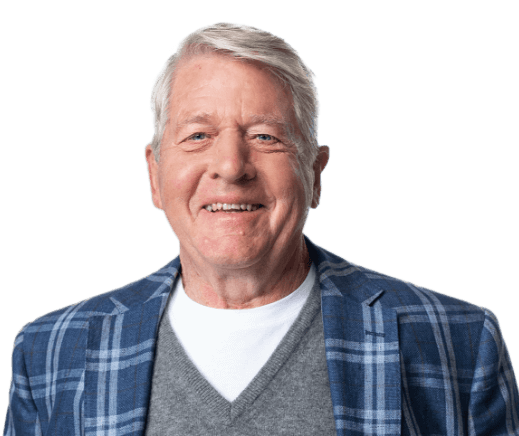Have you ever wondered what happens in couples counselling? You may have often realised that people are curious about what happens behind the closed doors of a couples counselling office.
If you're thinking about going to couples counselling with your significant other, you might wonder, "What would it be like?" or "Will the couples therapist or my partner blame me?" You may even doubt the efficacy of therapy in saving your relationship. However, you will only have to find all the answers after you've only had your first session.
The idea of attending a couple's therapy session with a partner can be very unnerving and sometimes frightening. Regardless, knowing what to expect can make your appointments more accessible and reassures you.
Today, we will cover what you need to know and expect from relationship counselling.
What is relationship counselling?
Couple counselling, as the name suggests, is counselling provided by relationship experts in a safe and comfortable environment to help couples with their relationship issues.
In essence, you and your partner will meet a specialist or a couples therapist to discuss things while exploring the relationship's problems confidentially. The therapist will encourage you both to open up so they can highlight the issues and what might be causing them distress.
One key point to take here is that this is a gradual process; it takes time for you to open up to each other, and patience and perseverance are necessary to make the therapy effective and successful.
What to expect from relationship counselling?
You do not need to bring anything formal. Most couples are thinking about why they are going to counselling and the issues they might want to discuss, even if it’s not essential. An experienced couples therapist would start the dice by asking the right questions to get you thinking.
To give you perspective, the counsellor would do as follows:
Getting to know you and your partner better
It starts with basics like getting to know you and your partner, your likes and dislikes, your family history and what makes you have conflict. This might feel like an interview, but as your relationship with your counsellor develops, the scheme will gradually become more conversational and chill.
Giving you and your partner homework
The counsellor will typically give you tasks to work on in between sessions. The assignments would involve communication to specific practices such as using words like “I” instead of “you” when managing conflicts.
Teaching you and your partner about honesty and intimacy exercises
Maintaining eye contact and holding hands might occur in the session. These are designed to make you feel comfortable by being intimate and affectionate to your partner.
You may even be tasked to create a list of fun activities to try together.
This will reintroduce a sense of excitement into your relationship. you might be asked to make an appreciation list where you write down things you appreciate about your partner to gain positive feelings toward them.
Introducing you to trust exercises
This is the fun segment where you will be asked to participate in trust exercises such as “trust falls” with your partner. According to a relationship and marriage expert, couples wait an average of 6 years while being unhappy with relationship problems before seeking a counsellor’s help. The good news is, according to the study, modern approaches to marriage counselling are showing success with average rates of 75% and above.
Once the necessary information is gathered, the couple's therapist or counsellor will proceed to take a brief history from you. Typically, they may ask questions such as:
- How long have you been having relationship problems?
- What have been the primary issues?
- Is this your first time going to a counsellor for relationship issues?
- Is there anything you and your partner have tried to do to overcome these issues?
- In terms of relationship counselling, what are your expectations?
In this approach, the meeting would be more than just gathering information about your relationship and your personality, even if significant issues are discussed and worked on at the beginning of the meeting's progress.
Usually, the counselling begins in the second session, when your couple. The therapist has a clear picture of the causes of your troubles, and all of the concerns have been dealt with and are clear to everyone in the room.
This way, the session would be more than just information gathering, although significant issues are often discussed and worked on at the early stage. The real work of counselling usually occurs during the second session, when your couple. The therapist has a clear idea of the roots of your problems, and all of the issues have been taken care of and are clear to everyone in the room.
When you attend counselling, it’s rarely something that you start doing with no end date in the future. Many people want to know how many sessions will be required. An effective couples therapist will pause and review your work together regularly. This is so you can track what’s working and not working in relationship counselling.
This also opens up the lines of feedback, so your therapist can change tack if needed.
Any effective relationship therapist is open to feedback- positive and negative, so don’t be afraid to tell your counsellor how you’re finding the therapy and if there’s anything you want to be done differently. This will help you get the most out of your work together and support you in getting the best possible results.
In addition, remember that online relationship counselling is an excellent option if you cannot get to a counsellor’s office. Since the pandemic, more couples are accessing online counselling services and getting results as good as in-person sessions.
How will the session be conducted?
Couples will attend a relationship counselling session based on their initiatives. This helps to establish an association with the couple's counsellor that is clearly about the team and their relationship – it is not a forced action.
Some relationship counsellors will only see their clients as a couple attending the session together. Suppose you have a particular issue that affects you explicitly as an individual, such as addiction or depression. In that case, your couples therapist might suggest you see another clinician or psychologist for individual therapy to address that specific issue.
Most of the time, a couple of counselling sessions combine several different tasks. Couples counselling or therapy is about developing trust with your counsellor or psychologist so that you feel comfortable discussing issues that might be difficult to discuss.
A professional couples therapist will make an effort to make both of you tell your side of the issue when talking about the problems you and your partner are struggling with.
You are setting your counselling goals.
This is one of the essential key elements in couples counselling. You will be told to set goals for the relationship. This would allow you and your partner to have more positive interactions. But what if you don’t know what your goals are supposed to be? That is fine - after all, it is your first session. Your couples therapist can help you set your goals if you are unsure where to start.
It is normal if you have different goals from your partner. Like everyone else in couples therapy, you and your partner may have different plans. You may be going to counselling in the hope that the relationship can be saved while the other person isn't so sure. Despite the differing viewpoints expressed in the first meeting, the relationship is not over. You two can still work it out together with the couple's therapist to improve your relationship.
To move forward in your relationship, you and your partner need to gain confidence in one another. Try to find a balance between working on relationship issues and maintaining a healthy relationship for couples therapy to be a success. Regardless of the outcome, the counsellor will devise a treatment plan tailored to your specific needs and promotes positivity and recovery.
Understanding each other
A great connection and intricate relationship with your therapist are crucial if you want effective counselling. Your couples therapist should present empathy and understanding towards both of you with no biased commentary.
For instance, you should not be taken lightly if you are showing concerns with your therapist. Confidence in your therapist will gain you the feeling of relief and comfort by the given fact that you feel understood during every session. Feeling understood is more than just being taken seriously.
Ensuring that your therapist is there to help your relationship
There's a common belief that couples therapy results in a counsellor encouraging couples to divorce, but that's not true. Counselling is meant to help couples heal, not to separate them.
Couples therapists have no business telling you whether or not you and your partner are a good match.
Their sole purpose is to help you work through your relationship's issues by showing you how to establish and maintain a healthy connection with your partner by learning how to communicate effectively. You and your partner are the only ones who can decide whether to end your relationship or not.
Encouraging you to be vulnerable
Couples therapy requires a willingness to open up to each other. It allows you to open up about the things you're struggling with in your relationships, such as pain, embarrassment, and insecurities. Your therapist needs to earn your trust for you to open up to them at the beginning of the session.
For therapy to be most effective and beneficial, you must first feel safe to open up about your feelings. Your couples therapist should be someone you can open up to and confide in so that you'll be more open to discussing your problems with them during your counselling sessions.
It's understandable if you're hesitant to try couples counselling for the first time because of all your concerns. Try couples counselling for the first time because of all your problems.
It will take time to develop a relationship of trust with your therapist and mend your broken heart.
What is the benefit for a couple after counselling?
Most of the time, relationship problems are not caused by a lack of affection or concern for our partners; instead, they result from a failure to express clearly what we want and need. According to many studies, a lack of effective communication is the most common factor at the end of relationships.
These are one of the benefits of couple counselling:
- Learning to be able to communicate more effectively
- Figuring out how to listen to your partner without leaping to assumptions and initiating an argument
- Having the capacity to argue and have disagreements with one other without destroying each other
- Improving both your personal and sexual life
- Developing the ability to respect your relationship better
- Understanding each other’s limitations as well as one's past
- Figuring out if there is a room for mediation to save a relationship that’s close to a divorce
Counsellors, therapists and psychologists work hard to realise and contain their own biases. However, many therapists will work on their preferences in their supervisory processes.
Examples of biases that might confront a therapist include firmly held beliefs about homosexuality and same-sex couples or an idea about marriage commitment. If you are worried about any preferences you might face, you should discuss these openly with your couples therapist.
Another personal bias that often concerns couples is a fear that the counsellor might side with one team member over another during the counselling therapy. Despite all the concerns, what you will probably discover is that professional counsellors work very diligently to ensure this would never happen.
Final note
It is essential to note that many couple therapists are not trained in marriage counselling. It is considered therapeutic and an approach to working with people, requiring specific training and experience.
Work with your counsellor who has undergone high training standards and has extensive experience working with couples. The best way to ensure this is to ask the counsellor about their couple therapy training and experience before you start to make an appointment.





